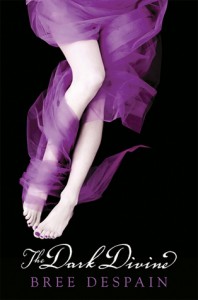 Grace Divine, daughter of the local pastor, sister of the handsomest (and nicest) guy in school, and the girl with unanswered questions. Like, what happened all those years ago when her brother Jude came home covered in blood and Daniel Kalbi completely disappeared?
Grace Divine, daughter of the local pastor, sister of the handsomest (and nicest) guy in school, and the girl with unanswered questions. Like, what happened all those years ago when her brother Jude came home covered in blood and Daniel Kalbi completely disappeared?By the way, Daniel used to be their next door neighbor and they were best friends growing up. Then Daniel lived with them for a few months after his dad disappeared. Then Daniel disappeared.
Grace used to ask her brother what happened. She used to bring up the topic with her family. But no one said anything, so they settled into silence. Because that's the way the Divine family is: they don't discuss the past and they don't discuss their problems, not even with each other.
Then comes the day when Daniel reappears, sitting at a desk in school with a completely new look and strange new powers. At first Grace is determined to find out what's going on, but does she really want to know?
It seems like she doesn't have any idea, because she's constantly changing her mind throughout the entire book. I swear, sometimes the girl has no curiosity. Though I have to say, she is pretty smart. After all, the smart thing to do is stay away from the dangerous teenage boy who seems to be in love with you but has dark powers and tells you to stay away (I'm looking at you, Bella Swan). So yeah, Grace follows her common sense and stays away every once in a while, but she's so bipolar that it doesn't last long.
Plus she's probably the most naive teenage girl ever. Boy does she have her stupid moments.
In the beginning (and actually, throughout the whole book), I was a little irritated with Bree Despain's vision of a Christian family. But as the story continues, Grace is made aware of the fact that her family has issues, so it's not that they're just being "good Christians," so I felt a little better after that.
The way the book is written is also a little annoying. It's mostly flashbacks, which do help to tell the story in the right order (kind of...?), but can be very cumbersome. In fact, lots of the scenes, both in the present and the past, just feel cumbersome. You could probably take out a hundred pages or so (or at least summarize them), and you'd still have the same story, just moving a little quicker.
And maybe if Grace would stop changing her frickin' mind.
One thing I really do like about The Dark Divine is the werewolves. Nowhere on the back of the book or the inside or in any summary anywhere does it mention the werewolves, but I'm going to give you a little spoiler and tell you that there are some. And they're very cool werewolves. It is not every day you read a Christian werewolf novel that somehow, inexplicably pulls it off.
Another pleasant surprise is the horror aspect. There were times when I really didn't want to put the book down because I couldn't wait to find out what happened next and I had a tingling at the back of my neck. Unfortunately, the tingling dissipated fairly quickly.
The twist ending is also very well done, but it would've been better if it had actually ended there. Ugh, how I hate happy little epilogues. They ruin the whole tone of the book (unless you're reading a happy little novel, in which case, it's perfectly fine).
So I have very mixed feelings about this book. Some of it, like the werewolves, is very good. Other parts, like Grace, make me groan. But it's surprisingly good, and I find myself recommending it despite the idiot main character. I don't expect much at all from the second book (The Lost Saint, oooh, sounds amazing), but the first one is worth a look.
--Persy
You might like this if you: have always wanted to read a Christian werewolf book; are looking for a new take on werewolves; or if you just have nothing else to read. Okay, so I might be struggling to find reasons to like this now.




